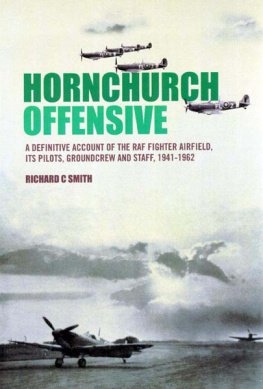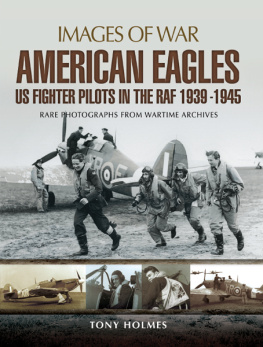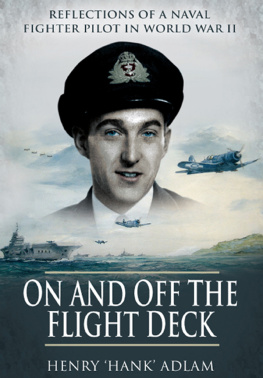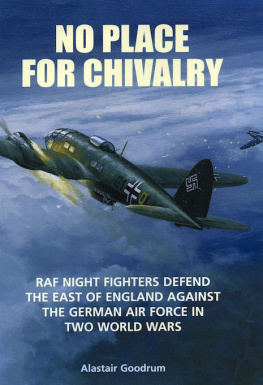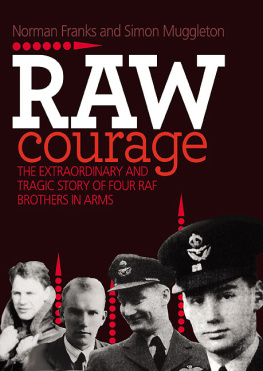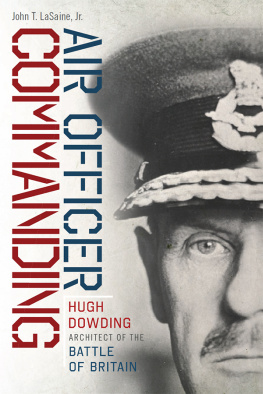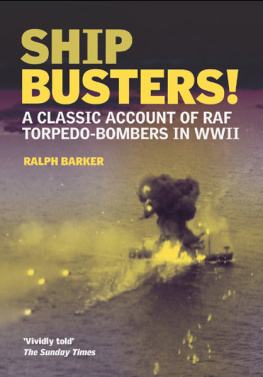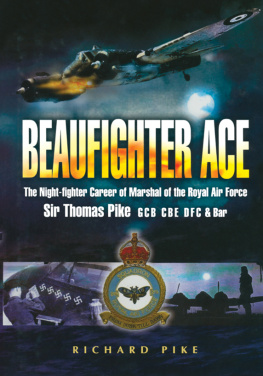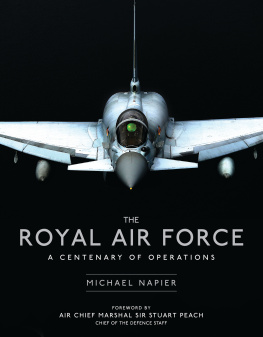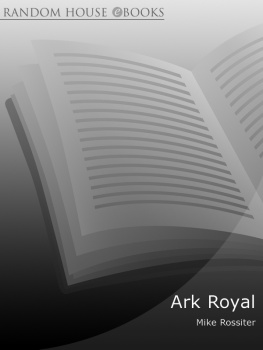
This edition is published by PICKLE PARTNERS PUBLISHINGwww.pp-publishing.com
To join our mailing list for new titles or for issues with our bookspicklepublishing@gmail.com
Or on Facebook
Text originally published in 1941 under the same title.
Pickle Partners Publishing 2016, all rights reserved. No part of this publication may be reproduced, stored in a retrieval system or transmitted by any means, electrical, mechanical or otherwise without the written permission of the copyright holder.
Publishers Note
Although in most cases we have retained the Authors original spelling and grammar to authentically reproduce the work of the Author and the original intent of such material, some additional notes and clarifications have been added for the modern readers benefit.
We have also made every effort to include all maps and illustrations of the original edition the limitations of formatting do not allow of including larger maps, we will upload as many of these maps as possible.
SO FEW: THE IMMORTAL RECORD OF THE ROYAL AIR FORCE
BY
DAVID MASTERS
TABLE OF CONTENTS
Contents
TABLE OF CONTENTS
DEDICATION
DEDICATED
TO
COURAGE AND SELF-SACRIFICE
LIST OF ILLUSTRATIONS
1. A SPITFIRE IN THE CLOUD
2. WING COMMANDER D. R. S. BADER, D.S.O.
3. AIRCRAFTMAN C. R. DRIVER, D.F.M.
4. FLIGHT LIEUTENANT B. J. WICKS, D.F.C.
5. SERGEANT JOHN HANNAH, V.C.
6. THE BURNED-OUT COCKPIT
7. SQUADRON LEADER A. C. DEERE, D.F.C.
8. THE BROKEN WING OF A HURRICANE
9. SQUADRON LEADER L. A. STRANGE, D.S.O.
10. THE RESCUE OF SERGEANT G. H. RILEY
11. BRITISH TROOPS ON DUNKIRK BEACH
12. WING COMMANDER R. A. B. LEAROYD, V.C.
13. FLIGHT LIEUTENANT H. M. STEPHEN, D.S.O.
14. PILOT OFFICER G. H. BENNIONS, D.F.C.
15. SPITFIRES SEEKING THE ENEMY
16. A SUNDERLAND RESCUING CREW OF KENSINGTON COURT
17. THE INTERCEPTED ITALIAN STEAMER MARZOCCO
18. THE MARZOCCO SCUTTLED
FOREWORD
IN the ever-changing kaleidoscope of war the gallant deeds of the Royal Air Force shine out against the sombre background like beacons which light up to the world the strength and fortitude and courage of the people of Britain and the British Empire. Fine deeds follow each other in such swift succession that almost before one has been noted there is another to supersede itflashes of heroism infused with something of the speed of the aircraft in which these modern crusaders fly, deeds that demand judgments so quick that life or death may depend upon the physical actions of a split second, a spiritual calm that the gravest danger and the greatest odds cannot shake, an endurance that does not falter so long as life exists.
The moving finger of the printing press writes its glowing tributes in a few words, and having writ, moves on, and what is written today is forgotten in the new splendour of the deeds of tomorrow. Consequently I have striven to place on more permanent record a few of the actions of the R.A.F. which have aroused the admiration of free peoples wherever they may be, and the following pages should reveal something of the spirit animating the airmen who are risking their lives against the much-vaunted German air force in order to save our civilization, a civilization which has been built up slowly and laboriously over the centuries, to a large extent on British inventions and ideals.
These young men who fly unafraid through darkness and storm, who mount at dawn through the lowering clouds until they emerge miles above the earth out in the clear sunshine, are modern knights of chivalry, carrying on a greater crusade than mankind has ever known; they spring from all classes of the population in Britain and the Empire, bus conductors, shop assistants, clerks, aristocrats, insurance agents, farmers, electricians, engineers, men of all creeds, but they are the same breed, running true to type in the face of danger.
Man for man they have proved themselves to be better than the Germans. Is this mere chance, depending on better aircraft, and are the better aircraft due to chance, or are there scientific reasons for them? The men of Britain who created the British Empire were the same stock who brought about the industrial and mechanical revolution; they were the inventors of the steam engine, the railway, all the marvellous machines that spin and weave and do a multitude of other things; they were the men who learned to handle engines a generation or two before the rest of the world whom they taught; and as they had a generation or two start over other peoples, is it surprising if their sons prove a little more adept than the Germans at handling these modern engines of the air? The past accomplishments of the British race may provide the answer.
Then the people of Britain are a seafaring race, they have been used to fighting with the seas for centuries, finding their way in little ships and big all over the globe to far distant points, marking the rocks and shoals on their maps and avoiding them. Thus they have not only learned to navigate in the most accurate manner, but they have learned to be self-reliant, to act and think quickly in the face of the perils of the sea. These same qualities which have enabled the mariners of England to find their way about the oceans are the very qualities which enable men to become supreme in the air and find their way in the dark to distant places, pin-point a factory on the map and bomb it to destruction. Looked at broadly, there is not such a great difference between sailing the sea and sailing the skies, and the best seamen should also turn out to be the best airmen.
Nor must I forget that other quality which has so baffled the continental nations and sadly misled them into misunderstanding the British people. I refer to the individualism of the race. The British people are a nation of individuals who prefer to go their own way and do what they like with their own lives. All they ask is to be left alone, and so long as their neighbours do not interfere with them they will not interfere with their neighbours. They air their views in the most outspoken way and will argue and bicker until the foreigner may think the dissension within the nation is so great that the slightest thing will start a civil war. But what the continental peoples unfortunately overlook is the fact that the political freedom so long enjoyed by the British people has bred in them a good-natured tolerance which serves as an effective mask for some of the finer qualities of human nature, a strong courage that may be concealed with a joke, a cold anger against cruelty, and other attributes which become manifest only in times of grave national danger. Tendentious in peace and tenacious in war would be one way of describing the British peoples, whose anger is so hard to rouse and so difficult to subdue.
Is it surprising that a nation of individuals who regard the sea as their heritage and who taught the world how to create and use machines should breed a dominant race of airmen? The Royal Air Force in smashing the German air attack on Great Britain in September, 1940, has supplied the answer. To me it seems obvious that a nation in which individualism has been encouraged for generations should provide a finer air force than the nation in which the initiative of the people has been crushed into following their leader like slaves, learning to do everything at the word of command, relying upon orders and not upon themselves. Nothing can be freer than the aeroplane in the sky. Once the pilot has taken off, he is the captain of his ship and his own soul, and I maintain that in no other sphere is it possible for individualism and initiative to shine so brilliantly.


